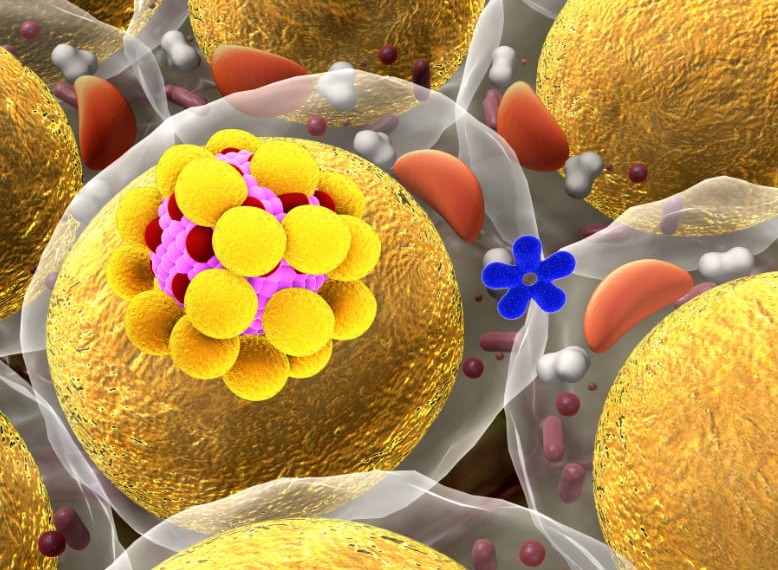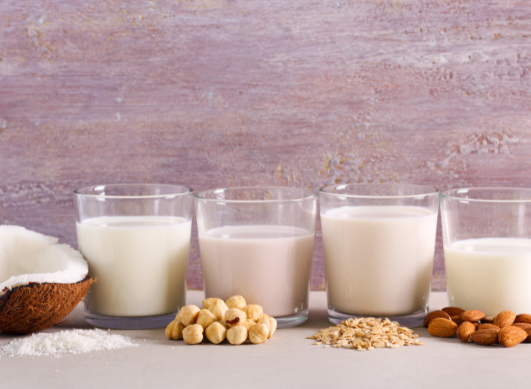- Home
- Share
- Forum
- Muscles / Skeleton / Joints Forum
- Living with diseases affecting muscles, joints and-or skeleton
- The 10 best foods for arthritis patients
Patients Muscles / Skeleton / Joints
The 10 best foods for arthritis patients
- 323 views
- 35 times supported
- 17 comments
All comments
Go to the last comment
![]()
Angel120
![]()
Angel120
Last activity on 03/01/2020 at 02:46
Joined in 2018
2 comments posted | 1 in the Muscles / Skeleton / Joints Forum
Rewards
-
Explorer
-
Newsfeeder
What works for some .doesn't work for others trail and error .my experience and is healthy eating definitely daily stretches and exercise helps your mind .body and soul and mindfulness. When very bad flare. yes pain meds help.we have one life so live it to full 😊

Unregistered member
Yes Michael
It will certainly be very useful to know what the scientist make of Turmeric. it claims to be the miracle spice, not just for Arthritis but for very many ailments according to the website "Turmeric For Health". How ever, a word of caution, Turmeric does interfere with certain medications and it is important to know that there should a gap of at least 2 hours between those drugs and taking Turmeric. Also those who take Turmeric without reading up on the website "Turmeric For Health" it is important that they know that one should not take Turmeric supplements if they are on anticoagulants eg Rivroxaban, Warferin etc Turmeric in diet is safer option for them. One should always Consult their medical practitioner before taking Turmeric.

Michael_B
Community managerGood advisor
![]()
Michael_B
Community manager
Last activity on 25/08/2020 at 17:48
Joined in 2019
204 comments posted | 10 in the Muscles / Skeleton / Joints Forum
1 of their responses was helpful to members
Rewards
-
Good Advisor
-
Contributor
-
Explorer
-
Friend
@nineteen_gale
That's a point that bears repeating. You should discuss any diet or lifestyle changes with your physician, just to make sure there are no unforeseen consequences.
See the signature
Michael_B, Community Manager, Carenity UK

Michael_B
Community managerGood advisor
![]()
Michael_B
Community manager
Last activity on 25/08/2020 at 17:48
Joined in 2019
204 comments posted | 10 in the Muscles / Skeleton / Joints Forum
1 of their responses was helpful to members
Rewards
-
Good Advisor
-
Contributor
-
Explorer
-
Friend
@beagle You're right, cutting out all the foods that you love would be a miserable way to live. Have you found any diet changes or exercises to be helpful for you personally?
See the signature
Michael_B, Community Manager, Carenity UK

Unregistered member
Only speaking from.personal experience but l found changing to a vegan plant based diet, CBD oil, Yoga and meditation eased pains from my Arthritis and Fibromyalgia and still continues to work.

Unregistered member
I've found that if I stick to dry foods, avoid oil and sauces my system copes better with the drugs, particularly berries and cranberries are energy boosters for me. I've recently come up with a new group of exercises which are helping my mobility, especially at work where I have a sedentary job. I ignore the pain and every 3 hours I walk up and down stairs(about 20), then do some squats, side stretches and leg lifts and stretches - these have to be done in the ladies though so people don't think I'm a nutter, but it is working, I'm trimmer and more mobile and take less pain relief.
![]()
rheumiroomie
Good advisor
![]()
rheumiroomie
Last activity on 30/06/2023 at 20:54
Joined in 2019
9 comments posted | 1 in the Muscles / Skeleton / Joints Forum
Rewards
-
Good Advisor
-
Contributor
-
Messenger
-
Explorer
Thanks for these tips. I'm in agreement that you have to avoid inflammatory things. We have so many troubles with our modern diet full of white flour, white rice, refined white sugar, everything bleached to death. Anyone tried going on a no carb diet?
Give your opinion
Members are also commenting on...
Living with diseases affecting muscles, joints and-or skeleton
Life after a joint replacement: Share your experiences and advice!
![]()
![]()
![]()

Unregistered member
I had a hip replacement 16 months ago due to osteoarthritis. I can honestly say it was the best decision I have ever made. Yes I was not looking forward to everything post op, but I am now 100% mobile and after not being able to walk any distances I now enjoy walking again and I've managed to lose 2.5 stones. Totally pain free and I've had lots of comments about how much happier I look - my face was obviously showing my pain. If you have any questions please ask!
See the best comment
Living with diseases affecting muscles, joints and-or skeleton
I'm A New Member Suffering With; Osteo Arthritis + Other Problems
![]()
![]()
![]()
Living with diseases affecting muscles, joints and-or skeleton
Life after a joint replacement: Share your experiences and advice!
![]()
![]()
![]()

Unregistered member
I had a hip replacement 16 months ago due to osteoarthritis. I can honestly say it was the best decision I have ever made. Yes I was not looking forward to everything post op, but I am now 100% mobile and after not being able to walk any distances I now enjoy walking again and I've managed to lose 2.5 stones. Totally pain free and I've had lots of comments about how much happier I look - my face was obviously showing my pain. If you have any questions please ask!
See the best comment
Articles to discover...

06/02/2019 | Advice
Photo testimonial: Years of diagnostic uncertainty facing Ehlers-Danlos Syndrome
Subscribe
You wish to be notified of new comments
Your subscription has been taken into account








Margarita_k
Community managerGood advisor
Margarita_k
Community manager
Last activity on 07/10/2020 at 11:39
Joined in 2016
1,195 comments posted | 9 in the Muscles / Skeleton / Joints Forum
1 of their responses was helpful to members
Rewards
Good Advisor
Contributor
Messenger
Committed
Explorer
Evaluator
Arthritis in all its types causes pain and inflammation which can be controlled with medication and healthy lifestyle.
For example, there are many foods that can ease inflammation and may help relieve some of the joint pain associated with arthritis. In fact, one survey found that 24% of those with rheumatoid arthritis reported that their diet had an impact on the severity of their symptoms.
Here are these super foods that are good for arthritis patients. NB: However, you should talk to your doctor before making any changes to your diet, as depending on your overall state of health and the presence of other health conditions, some products may not be recommended and even prohibited.
1. Fatty Fish
Fatty fish varieties such as salmon, mackerel, sardines and trout are high in omega-3 fatty acids, which have been shown to have potent anti-inflammatory effects.
In one small study, 33 participants were fed either fatty fish, lean fish or lean meat four times each week. After eight weeks, the fatty fish group had decreased levels of specific compounds related to inflammation. An analysis of 17 studies found that taking omega-3 fatty acid supplements decreased joint pain intensity, morning stiffness, the number of painful joints and use of pain relievers in patients with rheumatoid arthritis. Similarly, a test-tube study showed that omega-3 fatty acids reduced several inflammatory markers that are involved in osteoarthritis.
Fish is also a good source of vitamin D, which can help prevent deficiency. Multiple studies have found that rheumatoid arthritis may be associated with low levels of vitamin D, which could contribute to symptoms.
It is recommended to include at least two servings of fatty fish in your diet each week to take advantage of the beneficial anti-inflammatory properties.
2. Garlic
Garlic is jam-packed with health benefits.
In some test-tube studies, garlic and its components have been shown to have cancer-fighting properties. They also contain compounds that may lower the risk of heart disease and dementia. Additionally, garlic has been shown to have an anti-inflammatory effect that may help decrease symptoms of arthritis.
In fact, some research has shown that garlic may enhance the function of certain immune cells to help strengthen the immune system. In one study, researchers analyzed the diets of 1,082 twins. They found that those who ate more garlic had a reduced risk of hip osteoarthritis, likely thanks to garlic’s strong anti-inflammatory properties.
Another test-tube study showed that a specific component in garlic could decrease some of the inflammatory markers associated with arthritis.
Adding garlic to your diet could benefit both arthritis symptoms and overall health.
3. Ginger
Besides adding a burst of flavor to teas, soups and sweets, ginger may also help ease the symptoms of arthritis.
A 2001 study assessed the effects of ginger extract in 261 patients with osteoarthritis of the knee. After six weeks, 63% of participants experienced improvements in knee pain.
One test-tube study also found that ginger and its components blocked the production of substances that promote inflammation in the body.
Another study found that treating rats with ginger extract decreased levels of a specific inflammatory marker involved in arthritis.
Consuming ginger in fresh, powdered or dried form may reduce inflammation and aid in reducing symptoms of arthritis.
4. Broccoli
It's no secret that broccoli is one of the healthiest foods out there. In fact, it may even be associated with reduced inflammation.
One study that looked at the diets of 1,005 women found that the intake of cruciferous vegetables like broccoli was associated with decreased levels of inflammatory markers.
Broccoli also contains important components that could help reduce symptoms of arthritis. For example, sulforaphane is a compound found in broccoli. Test-tube studies have shown that it blocks the formation of a type of cell involved in rheumatoid arthritis development. An animal study also found that sulforaphane could reduce the production of certain inflammatory markers that contribute to rheumatoid arthritis.
While more studies in humans are needed, these test-tube and animal study results show that the compounds in broccoli may help decrease symptoms of arthritis.
5. Walnuts
Walnuts are nutrient-dense and loaded with compounds that may help reduce the inflammation associated with joint disease.
One analysis of 13 studies showed that eating walnuts was associated with reduced markers of inflammation. Walnuts are especially high in omega-3 fatty acids, which have been shown to decrease the symptoms of arthritis.
In one study, 90 patients with rheumatoid arthritis took supplements of either omega-3 fatty acids or olive oil. Compared to the olive oil group, those who received omega-3 fatty acids experienced lower levels of pain and were able to reduce their use of arthritis medications.
However, most existing research focuses on the effects of omega-3 fatty acids in general on arthritis. Further studies are required to learn more about the effects of walnuts, specifically.
6. Berries
Tons of antioxidants, vitamins and minerals are crammed into each serving of berries, which may partially account for their unique ability to decrease inflammation.
In one study of 38,176 women, those who ate at least two servings of strawberries per week were 14% less likely to have an elevated level of inflammatory markers in the blood. Additionally, berries are rich in quercetin and rutin, two plant compounds that boast a huge number of benefits for your health.
In one test-tube study, quercetin was found to block some of the inflammatory processes associated with arthritis. Another study gave rats quercetin and rutin supplements, both of which decreased arthritis-related inflammation.
Fortunately, if you want to take advantage of these impressive health benefits, there's a wide variety of berries to choose from. Strawberries, blackberries and blueberries are just a few options that can satisfy your sweet tooth and provide plenty of arthritis-fighting nutrients.
7. Spinach
Leafy greens like spinach are full of nutrients, and some of their components may actually be able to help decrease inflammation caused by arthritis.
Several studies have found that a higher intake of fruits and vegetables is linked to lower levels of inflammation. Spinach, in particular, contains plenty of antioxidants as well as plant compounds that can relieve inflammation and help fight disease.
Spinach is especially high in the antioxidant kaempferol, which has been shown to decrease the effects of the inflammatory agents associated with rheumatoid arthritis. A 2017 test-tube study treated arthritic cartilage cells with kaempferol, and found it reduced inflammation and prevented the progression of osteoarthritis.
However, more research is needed to study the effects of spinach and its components on humans with arthritis.
8. Grapes
Grapes are nutrient-dense, high in antioxidants and possess anti-inflammatory properties.
In one study, 24 men were given either a concentrated grape powder that was equivalent to about 1.5 cups (252 grams) of fresh grapes, or a placebo daily for three weeks. The grape powder effectively decreased levels of inflammatory markers in the blood.
Additionally, grapes contain several compounds that have been shown to be beneficial in the treatment of arthritis. For example, resveratrol is an antioxidant present in the skin of grapes. In one test-tube study, resveratrol showed potential for helping prevent the thickening of the joints associated with arthritis by blocking the formation of rheumatoid arthritis cells.
Grapes also contain a plant compound called proanthocyanidin, which may have promising effects on arthritis. For example, one test-tube study showed that grape seed proanthocyanidin extract reduced inflammation related to the disease.
Keep in mind that these are test-tube studies using concentrated doses of antioxidants far greater than the amount you would consume in a typical serving.
Further research is needed to determine how these results may translate to humans.
9. Olive Oil
Well-known for its anti-inflammatory properties, olive oil may have a favorable effect on arthritis symptoms.
In one study, mice were fed extra-virgin olive oil for six weeks. This helped stop the development of arthritis, reduce joint swelling, slow cartilage destruction and decrease inflammation. In another study, 49 participants with rheumatoid arthritis consumed either fish oil or an olive oil capsule each day for 24 weeks. At the end of the study, levels of a specific inflammatory marker had decreased in both groups — by 38.5% in the olive oil group and between 40–55% in the fish oil group.
Another study analyzed the diets of 333 participants with and without rheumatoid arthritis, finding that olive oil consumption was associated with a lower risk of the disease.
Although more research is needed on the effects of olive oil on arthritis, including olive oil and other healthy fats in your diet can definitely benefit your health, and may also reduce arthritis symptoms.
10. Tart Cherry Juice
Tart cherry juice is an increasingly popular beverage derived from the fruit of the Prunus cerasus tree.
This potent juice offers a wide array of nutrients and health benefits, and may even help reduce the symptoms of arthritis. In one study, 58 participants received either two 8-ounce (237-ml) bottles of tart cherry juice or a placebo every day for six weeks. Compared to the placebo, tart cherry juice significantly decreased symptoms of osteoarthritis and reduced inflammation.
In another study, drinking tart cherry juice for three weeks reduced the levels of inflammatory markers in 20 women with osteoarthritis.
Be sure to look for an unsweetened variety of tart cherry juice to make sure you don’t consume excess added sugar.
In combination with a healthy diet and other arthritis-fighting foods, a serving of unsweetened tart cherry juice per day may help decrease some of the symptoms of arthritis.
Source: healthline.com
____________________________
Which foods do you consume often? Do you feel it helps you fight your arthritis symptoms?